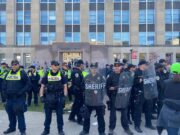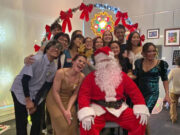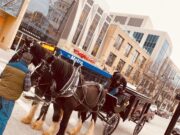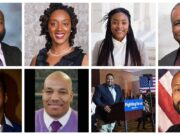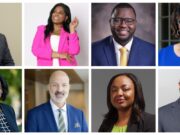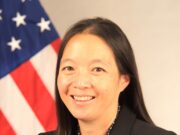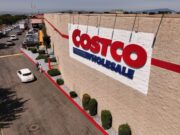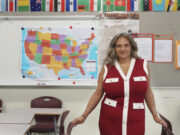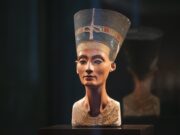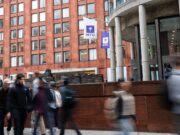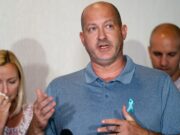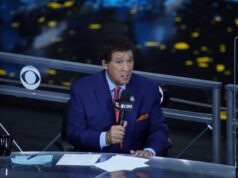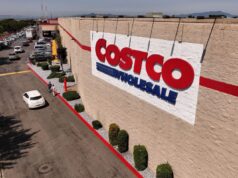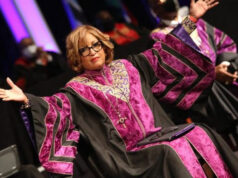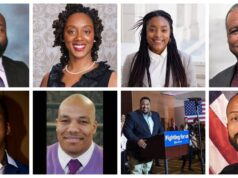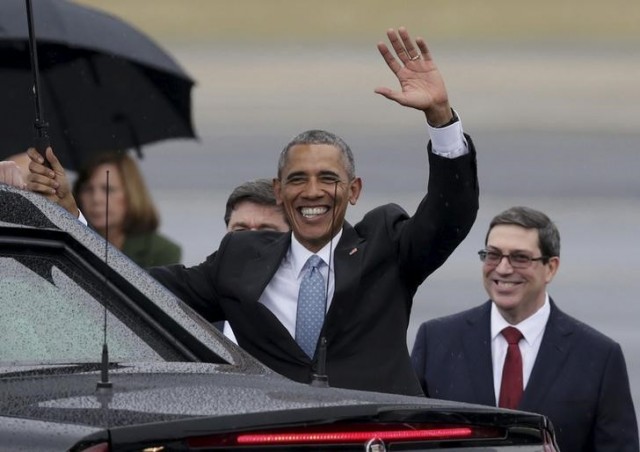
(Reuters) – U.S. President Barack Obama turns from sightseeing to state business on his historic Cuba trip on Monday, pressing President Raul Castro for economic and democratic reforms while hearing complaints about continued U.S. economic sanctions.
Obama and Castro will have their fourth meeting, likely their most substantial, at the Palace of the Revolution, where Castro and his predecessor, older brother Fidel Castro, have led Cuba’s resistance to U.S. pressure going back decades.
A U.S. presidential visit to the inner sanctum of Cuban power would have been unthinkable before Obama and Raul Castro’s rapprochement 15 months ago, when they agreed to end a Cold War-era dispute that lasted five decades and continued even after the collapse of the Soviet Union.
The two leaders have deep differences to discuss as they attempt to rebuild the bilateral relationship.
Obama is under pressure from critics at home to push Castro’s Communist government to allow dissent from political opponents and further open its Soviet-style command economy.
His aides have said Obama will encourage more economic reforms and greater access to the Internet for Cubans.
“One of the things that we’ll be announcing here is that Google has a deal to start setting up more Wi-Fi and broadband access on the island,” Obama told ABC News in an interview that aired on Monday. He gave no other details, and representatives for Google could not be immediately reached.

His administration hopes changes might also come at a Communist Party congress next month but doubts any political opening will be forthcoming.
Still, Obama has promised to talk about freedom of speech and assembly in Cuba. “I will raise these issues directly with President Castro,” he told the Cuban dissident group the Ladies in White in a March 10 letter.
Castro has said Cuba will not waver from its 57-year-old revolution and government officials say the United States needs to end its economic embargo and return the Guantanamo Bay naval base to Cuba before the two nations can enjoy normal relations.
Cuban police backed by hundreds of shouting pro-government demonstrators broke up a Ladies in White march on Sunday, detaining dozens of people just hours before Obama landed.
Obama has urged Congress to rescind the 54-year-old embargo but has been rejected by the Republican leadership. He now has both Democratic and Republican elected officials with him on his Cuba trip and hopes Congress may act after the Nov. 8 presidential election.
One Cuban yelled “Down with the embargo!” during Obama’s tour of Old Havana, and the president responded by raising his right hand.
Asked about the potential for U.S. companies to lose out to other countries in the Cuban market, Obama told ABC: “There’s no doubt that we still have some work to do, and part of that is bringing an end to the embargo that is currently in place.” While it may not happen during his final year in office given the U.S. presidential election, “it is inevitable,” he added.
Thwarted by Congress on the embargo, Obama has instead used his executive authority to loosen restrictions on trade and travel with the Caribbean island.

Cuba has praised those measures but Castro will likely use the meeting on Monday to press Obama to go further.
“We think the U.S. government can take more steps to send clear and direct signals in this direction,” Foreign Trade Minister Rodrigo Malmierca told reporters on Sunday.
Obama and Castro met for half an hour during a regional summit in Panama last April and they also had brief encounters at Nelson Mandela’s funeral in 2013 and at the U.N. General Assembly last September.
Traveling with his family, Obama was greeted by cheering crowds on the road from the airport and while on a walking tour of Old Havana on Sunday.
Besides meeting Castro, he also plans to visit a state-owned micro brewery and attend a state dinner on Monday.
On Tuesday, he will deliver a speech on live Cuban television and attend an exhibition game between Major League Baseball’s Tampa Bay Rays and Cuba’s national team.


